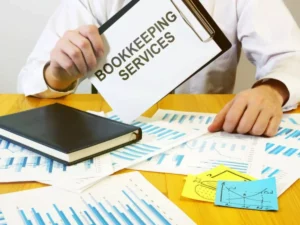People often think of opening a restaurant with good culinary skills and a passion for hosting. It is necessary to properly organize accounting so that business brings profit in addition to pleasure. If the owner understands all the intricacies of restaurant bookkeeping, it lets the eating place succeed and stay afloat for many years. Let’s talk about some complications of bookkeeping in a restaurant business.
Some words about restaurant accounting
An accounting report means controlling the financial activities of the eatery and correcting the budget to ensure the right start and development of the business. Whether your business will become prosperous depends on a competent business plan, a transparent organization, correct records, etc.
The main aspects of restaurant bookkeeping:
- Understanding where the money goes.
- Cost control.
- Identification of the primary sources of income.
- Calculation of the break-even point.
- Checking bank statements.
- Preparation of tax reports, budget, and other accounts.
Cooperation with a qualified accountant will save a lot of time that the establishment owner can spend managing the restaurant. A professional will carefully record all financial information and keep notations of accounts payable, reducing the risk of mistakes. Detailed books allow you to determine the potential level of income and understand what costs burden your budget.
Should you deal with an accountant?
Entrepreneurs must know their strengths and delegate their weaknesses to specialists to succeed. Managing the restaurant bookkeeping personally is the same as hiring an engineer to cook delicacies; that is not the best solution.
In most cases, the restaurant owner controls inventory, recruits staff, and monitors prices. Cooperation with an accountant will save you from conducting financial analyses and other routine monetary issues.
It is necessary to find a specialist who knows the intricacies of producing various dishes and drinks from the menu, doing business, and understanding the front-of-house procedures. A professional accountant may explain how to balance financial performance and what KPIs to focus on depending on the chosen business model.
How to find a bookkeeping expert for your business?
Restaurant accountants know how to collect the necessary information accurately. The specialist will analyze financial performance and identify operational problems, unnecessary costs, and trends. It is possible to outsource the duties of an accountant or hire an accountant on a full or part-time basis. Key points to keep in mind:
- Accountants often require an hourly rate; the rate depends on the length of service. When working with an outsourcing company, you can reduce costs by entrusting the rough labor to junior employees and comprehensive analysis to CPA professionals.
- Choose an accountant who knows the specifics of restaurant bookkeeping. The business structure of a restaurant is different from other organizations, which is why they need to use unique restaurant accounting methods and benchmarks.
Entrepreneurs often think about who they need: an accountant or a CPA. These professionals have a lot in common. The difference is that CPAs perform deep financial analysis and advise on taxes and fees, while accountants handle routine issues, including payroll, debt management, journal entries, etc.
Financial statements
Reports are the key to understanding the state of affairs in restaurant bookkeeping. We advise looking at sales volumes daily and analyzing the turnover of tables. Once a month, you must view the balance sheets, reports, revenues, and losses. We have compiled a list of crucial restaurant accounting documents:
- The Profit and Loss Statement reflects all the income and expenses of the cafe for a certain time. The usefulness of such a report depends on its level of detail.
- The end-of-day sales report provides complete information about goods customers bought by product group.
- The chart of accounts allows a company to record all financial transactions by category to get a complete picture of the economic situation of a restaurant.
- The cash flow statement is the most important statement for any business. It shows the sources of financing and the use of capital.
- The balance sheet is a restaurant accounting statement that shows the company’s total assets, debts, and capital. Balance analysis allows you to understand how much your restaurant is worth. You can take most indicators for financial analysis from the balance sheet.
- The report on controlled costs lets you understand what the company spends its money on, affecting its earnings.
The restaurant business has a low return rate, meaning that without financial statements, you run the business randomly. Regularly reviewing your restaurant bookkeeping and operating reports is the key to success and optimal results. Knowledge of the reporting, including the revenue and capital flow statements, allows you to keep resources in any situation.
Tips for better understanding bookkeeping in a restaurant
Practice plays a significant role in accounting, so it cannot be easy at first to determine how to manage ledgers and accounts successfully. Check out our tips for running a restaurant to understand restaurant bookkeeping better. Constant analysis of financial activity will allow your cafe to become as successful as you dreamed of:
- Consult with colleagues. Understanding how other restaurant owners keep their books will help you understand how to handle your books. After talking with a successful owner, it will be easier to decide whether it is worth keeping restaurant accounting yourself or if it is better to hire a professional.
- Stick to precision. It is important to reflect the exact amounts of income and expenses in the documents. Even slight daily rounding by a few cents can result in a significant misstatement of monthly or yearly results.
- Understand costs. There are two categories of expenses: variable costs and fixed costs. The former comprise most of the charges, including ingredients, taxes, staff salaries, etc. Fixed costs do not depend on the number of customers and food production volumes; they include rent, equipment costs, insurance, etc. When compiling reports, it is vital to understand pricing in every category.
- Control your income. Understanding the essence of income is just as crucial for restaurant bookkeeping as careful work with expenses. Accounting entries must reflect earnings from the sale of food products and activities in the restaurant industry. Incorrect income estimation gives the impression that the business is making a loss, although this is not the case. Revaluation of income is fraught with too large expenses.
- Use dedicated software, such as Restaurant365. Reliable programs streamline entering information, creating personal accounts, controlling income, compiling reports, and monitoring capital flows. Modern restaurant accounting software offers extensive functionality and a simple interface; it provides access to data from any device. Many programs offer a free trial period.
- Define a point-of-sale (POS) system: no matter the size of your business, you need a POS system to manage finances, print receipts, and track inventory. You may synchronize it with accounting software.
Even if you manage your financial system yourself, consider outsourcing your payroll. It is responsible work; any mistake in payment documents can cost too much. A professional accountant keeps track of all changes in employment.
What processes do you have to monitor?
Restaurant bookkeeping consists of the critical accounting processes that keep the business running. While it makes sense to delegate most of the financial operations to accountants, there are a few things a business owner needs to know to understand what they are talking about.
- Payroll: it is a hassle, especially if you have to deal with irregular schedules and the calculation of different types of pay.
- Accounts payable: timely settlements with suppliers guarantee the uninterrupted operation of the restaurant. You can add invoices to your accounting software to keep up with your payment schedule.
- Inventory: experts recommend using the inventory management function based on the size of your restaurant. Inventory also helps to avoid the accumulation of excess products in warehouses.
- Cash Control: track how much money goes into your account and out of your organization.
- Sales: analyze how much you get from product sales. Ideally, divide your income into different product groups.
Reconcile accounts regularly to ensure all transactions are documented and the necessary amounts are on the accounts. You need to reconcile loans, vendor debt, and payroll obligations. It is the only path to ensure that all transactions are accounted for. Account reconciliation provides information about problems with deposits, cash inaccuracies, lost checks, and other mistakes.
Conclusion
Making a restaurant bookkeeping is not easy, and you can’t do it without knowing key processes. Careful control of income, expenses and stocks with the help of accounting report tools allows for determining all the business details. When the owner understands the basics, he can make essential changes for the restaurant’s growth and rise profits. Bookstime provides customized services to satisfy customer needs. If you need a bookkeeper who has extensive experience in the restaurant business, we are ready to help. Competent restaurant bookkeeping guarantees the order in documents and the absence of a headache during the tax payment period.


















